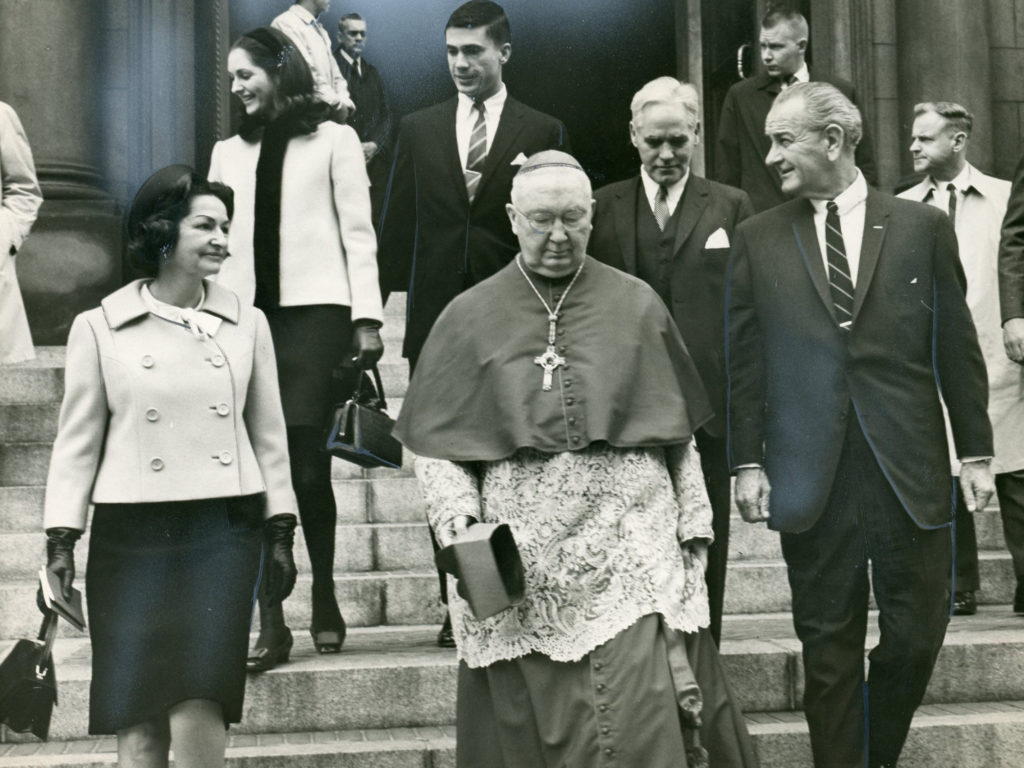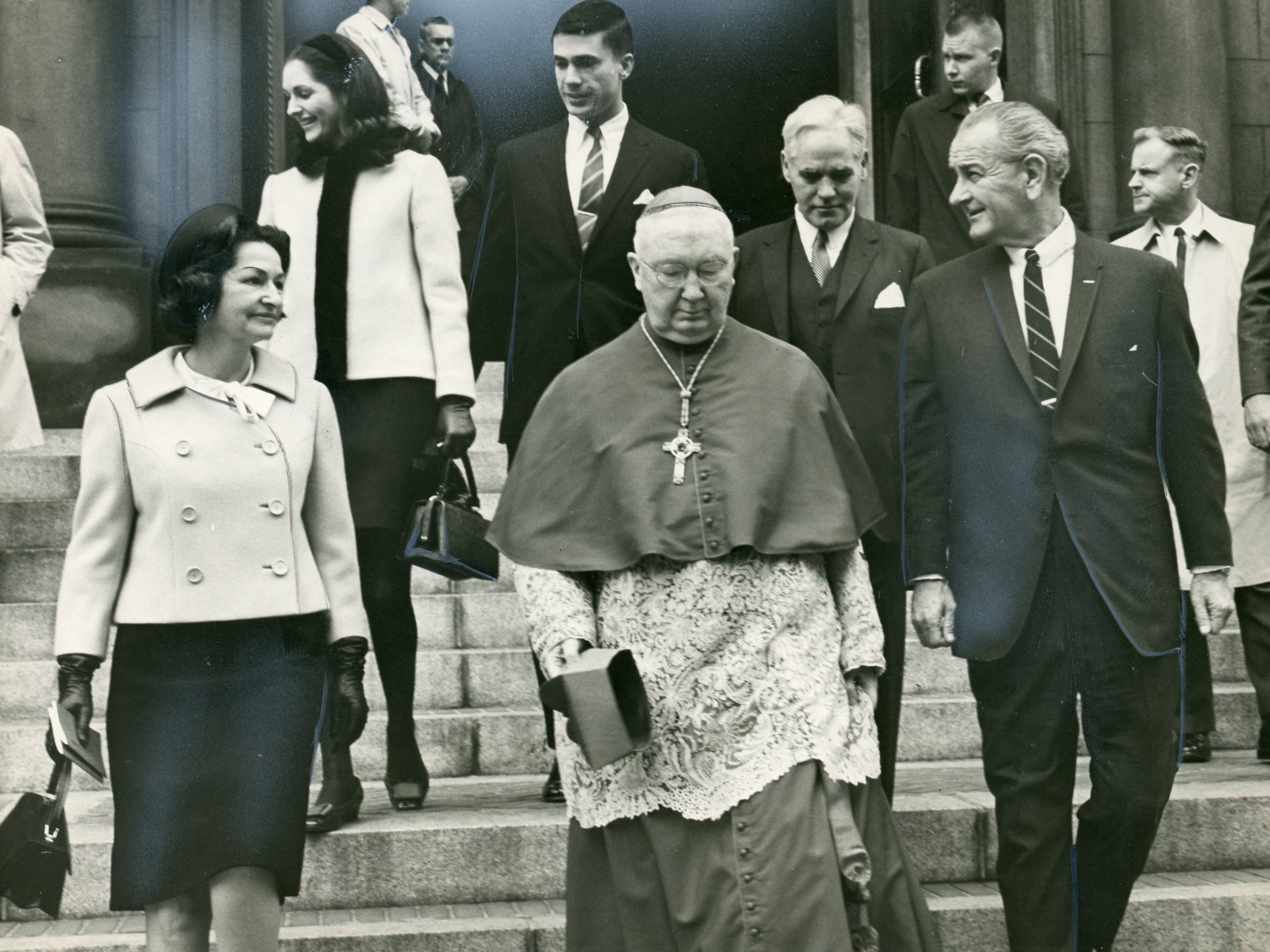
WASHINGTON (CNS) — In a statement marking the 50th anniversary of the Civil Rights Act of 1964, the president of the U.S. Conference of Catholic Bishops called the legislation a “monumental step forward” but added that there is “still much work to do.”
“The act itself did not eradicate racial discrimination and injustice. In fact, there are reminders across our nation today that the embers of racial discrimination still smolder,” said the Sept. 9 statement issued by Archbishop Joseph E. Kurtz of Louisville, Kentucky.
[quote_box_right]
St. Peter Claver
- Bio and video bio
- Knights of Peter Claver and Claver Day statement
- Homily on St. Peter Claver[/quote_box_right]The statement was issued on the memorial of St. Peter Claver, a Jesuit priest canonized in 1888 and known as the patron of African missions and interracial justice because of his work with slaves in Colombia.
The archbishop stressed the need to “continue to work against the destructive influence of racism on families, religious and civil communities, employment, the prison system, housing, hunger, educational achievement, and mental health.”
He paid tribute to men and women who made personal sacrifices and endured hardship to stand up for “racial justice against bigotry, violence, ignorance, and fear” in their work for civil rights. He also said he was “especially grateful for the vital contributions of the faith community during this period” noting that many “priests and religious sisters and brothers shared their faith with the African-American community by their presence, faithful witness, and Gospel-inspired service.”
Archbishop Kurtz also said the U.S. bishops joined their predecessors “who repeatedly spoke against racism.”
In the 1963 statement “On Racial Harmony,” the bishops condemned segregation saying it “implies that people of one race are not fit to associate with another.” They also said “discrimination based on the accidental fact of race or color … cannot be reconciled with the truth that God has created all men with equal rights and equal dignity.”
[quote_box_right]African American Catholics in the U.S.[/quote_box_right]
The 2014 statement notes that church leaders, including Archbishops Joseph E. Ritter of St. Louis, Patrick A. O’Boyle of Washington and Joseph F. Rummel of New Orleans and Cardinal Lawrence J. Shehan of Baltimore, worked in the mid-20th century to desegregate Catholic schools, hospitals and other institutions, “clearly signaling by their words and actions that racial discrimination has no place in the church or in society.”
Archbishop Kurtz also credited the bishops for describing racism as a sin in their 1979 statement: “Brothers and Sisters to Us.”
[quote_box_right]
Civil Rights: Rebuilding the Bridge
The U.S. Bishops are examining how the lessons and legacy of the civil rights era continue to shape Catholics and faithful citizens today. Follow #RebuildingBridge online and via social media through 2015
Related article: Memories of civil rights struggles still fresh in Mississippi town[/quote_box_right]
The archbishop said the Civil Rights Act offered “an olive branch of hope” and promised a better quality of life for millions of Americans. He also said the legislation “championed human dignity and provided legal protections that began to transform communities around the country.”
He noted the “special and untiring contributions of Rev. Dr. Martin Luther King, Jr.” and urged people today to continue to uphold human dignity and to “honor with gratitude the sacrificial labors” of Rev. King’s writings and actions.
“Respecting the dignity of each person is paramount as we seek to spread the beauty of God’s truth throughout our world,” he said.







